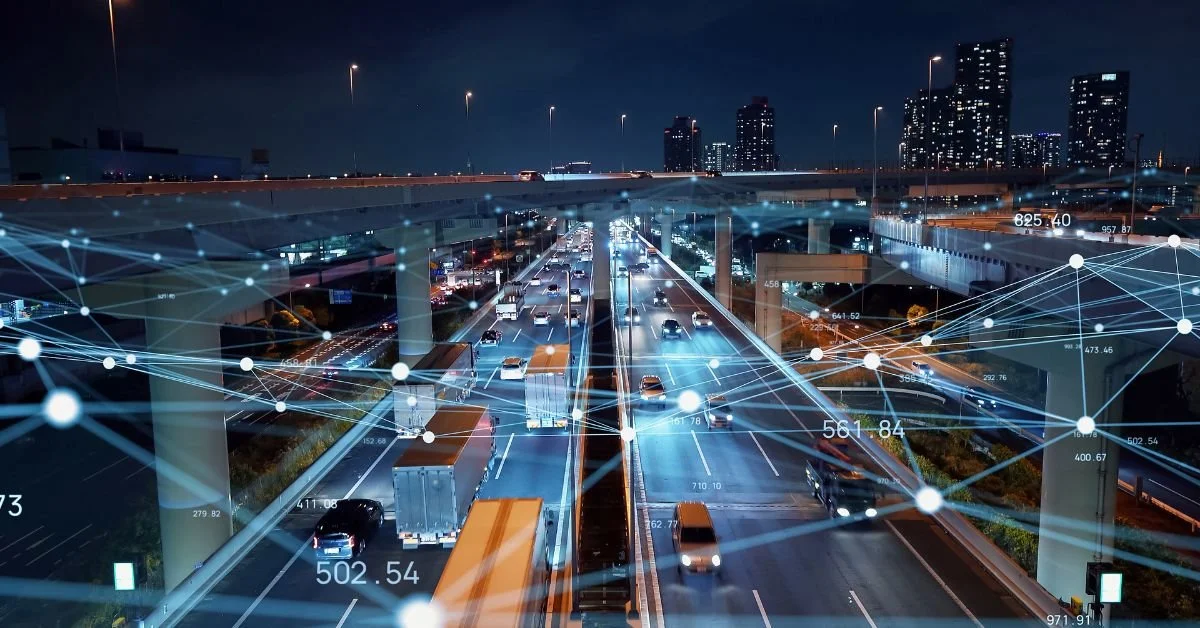Cyberattacks against trucks: How cutting-edge technology created new risks for the supply chain operations
17 June 2025
The rapid digitalisation of supply chain optimisation processes and trucking systems creates more opportunities for criminals to infiltrate these systems, potentially leading to supply chain disruptions, truck isolation, and cargo theft. These emerging threats highlight the need for proactive strategies to mitigate supply chain risks.
By Georgios Kostoudis, LandRisk Junior Analyst
The adoption of smart technologies and the digitalisation of supply chains bring both opportunities and vulnerabilities. Whilst the use of technology enhances operational efficiency, it also exposes critical systems to increasingly sophisticated cyber threats. Electronic Control Units (ECUs), and protocols that manage critical functions of vehicles are particularly vulnerable and can be remotely exploited to impact, for example, brakes and acceleration systems. Past incidents also suggest that Electronic Logging Devices (ELDs) are susceptible to various attacks that can disable fleet tracking, leak sensitive information, and facilitate ransomware attacks or targeted truck isolation.
Beyond this admittedly critical concern, digital integration across the supply chain has introduced more complex and subtler forms of exploitation, such as identify spoofing and social engineering attacks. Organised criminal groups (OCGs) are increasingly using fraud to impersonate legitimate trucking companies to obtain cargo from operators without detection, for example. Recorded incidents suggest that impersonation strategies vary. These groups may pose as drivers using stolen or fabricated IDs to gain unauthorised access to cargo or vehicles and bypass security protocols. Other methods of deception include impersonating carriers or creating fraudulent accounts with brokers and carriers in order to book shipments, which they then steal or misdirect.
The technical expertise of these criminal groups enables them to use tools that make document fabrication of impersonation easy and efficient. Criminals leverage their internal capabilities and artificial intelligence (AI) to generate phishing emails, deepfakes, and malware designed to access sensitive freight data. Additionally, by attacking cloud-based storage systems, perpetrators aim to gain access to driver, cargo, and freight information.
These sophisticated digital threats are further exacerbated by the inconsistent cybersecurity practices of third-party vendors, who represent a highly vulnerable link in global supply chain operations. The security protocols of these actors are not always transparent or easily verified, and differences in their risk tolerance and cybersecurity resilience can create security gaps and infiltration points for criminals. These risks not only affect the operational integrity of the supply chain but also pose reputational, regulatory, compliance, and operational threats.
While cyberattacks may appear to be primarily technical threats, intelligence plays a vital role in identifying potential risks and enabling a proactive approach to managing them. First, many cyberattacks affecting supply chain operations are discovered reactively, underscoring the importance of threat intelligence to detect and interpret industry-specific threats such as malware campaigns, phishing tactics, and vulnerabilities in widely used logistics software. At the same time, being aware of evolving modus operandi trends and patterns, such as the rise in fraudulent pickups, is fundamental for operators to design and implement effective risk mitigation measures.
Additionally, understanding the broader social, political, and geopolitical landscapes also plays a significant role in developing an effective, proactive strategy against supply chain cyber risks. Unlike in the past, many current threat actors are not driven solely by financial gain. State-sponsored hackers, ideological groups, and agents of hybrid warfare may target supply chains, transportation networks, and logistics infrastructure to disrupt, destabilise, or gain strategic advantage rather than profit. These attacks can be highly sophisticated and difficult to anticipate using traditional risk models.
In conclusion, cyber threats are no longer solely technical concerns; they are now frontline business risks. As attacks become more sophisticated and the interconnectedness of the industry provides multiple entry points for criminals, the need for predictive intelligence has become imperative.
📢 LandRisk Logistics:
Discover how LandRisk Logistics can assist in protecting your supply chain against evolving security threats
Contact us to learn about customised, intelligence-driven strategies designed to enhance resilience and safeguard your operations. Our team collaborates closely with clients to identify vulnerabilities and develop practical solutions tailored to their specific challenges. Proactive engagement is essential to mitigate risks and ensure continuity. Get in touch today to stay ahead of potential disruptions!

